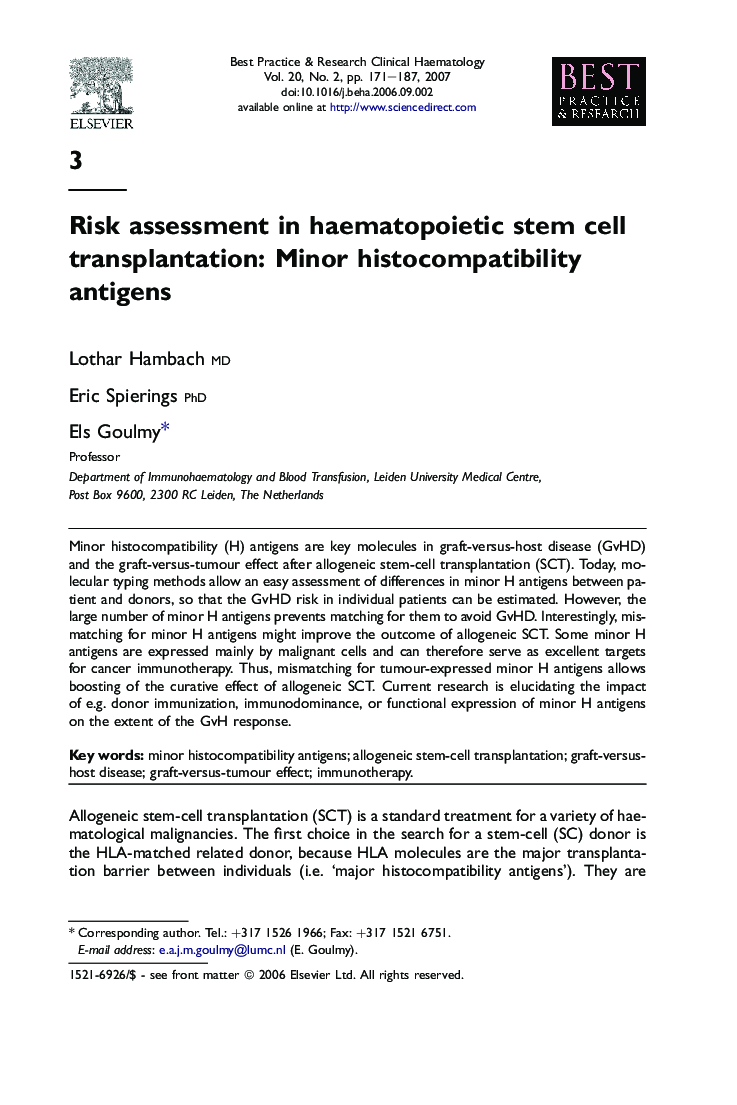| Article ID | Journal | Published Year | Pages | File Type |
|---|---|---|---|---|
| 2100561 | Best Practice & Research Clinical Haematology | 2007 | 17 Pages |
Minor histocompatibility (H) antigens are key molecules in graft-versus-host disease (GvHD) and the graft-versus-tumour effect after allogeneic stem-cell transplantation (SCT). Today, molecular typing methods allow an easy assessment of differences in minor H antigens between patient and donors, so that the GvHD risk in individual patients can be estimated. However, the large number of minor H antigens prevents matching for them to avoid GvHD. Interestingly, mismatching for minor H antigens might improve the outcome of allogeneic SCT. Some minor H antigens are expressed mainly by malignant cells and can therefore serve as excellent targets for cancer immunotherapy. Thus, mismatching for tumour-expressed minor H antigens allows boosting of the curative effect of allogeneic SCT. Current research is elucidating the impact of e.g. donor immunization, immunodominance, or functional expression of minor H antigens on the extent of the GvH response.
